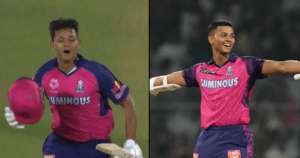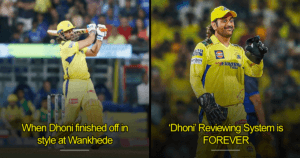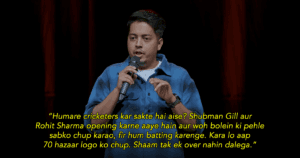Note: If you have not seen Dangal yet, there are spoilers ahead.
It’s the day ahead of the 1983 World Cup final. West Indies, the all-dominating team led by Cliff Logan, has two World Cups under its belt. They are the overwhelming favourites against India, who had no business being in the final anyway. Cliff Logan, in his press conference points out his side’s dominance with a confident smirk on his face. “Who are these guys? What is their pedigree? We will crush them and go for an early party in this nice pub in London. In fact, some of our guys are already there, celebrating our win. It’s going to be a no-contest, muhaha!”
And the next day, India created history. With 5 runs needed from the last ball, Kapil Dev hit a six so massive that it broke the windows at the famous Lord’s balcony. The broken pieces of glasses came flying all the way and hit the arrogant West Indian captain in his head, who was given a lesson in humility.
Bharat mata ki jai!
Sounds ridiculous, doesn’t it? Hypothetically, if Bollywood made a biopic of the Kapil’s Devils and that was the climax of the movie, would you have applauded at the end? You wouldn’t and you shouldn’t. Kapil Dev leading India to the World Cup was exhilarating, dramatic and inspiring on its own without adding any of these masala elements to it.
So why then should Aamir Khan and Nitesh Tiwary think Geeta Phogat’s amazing journey to the Commonwealth Gold medal in 2010 was not a good enough story by itself ?
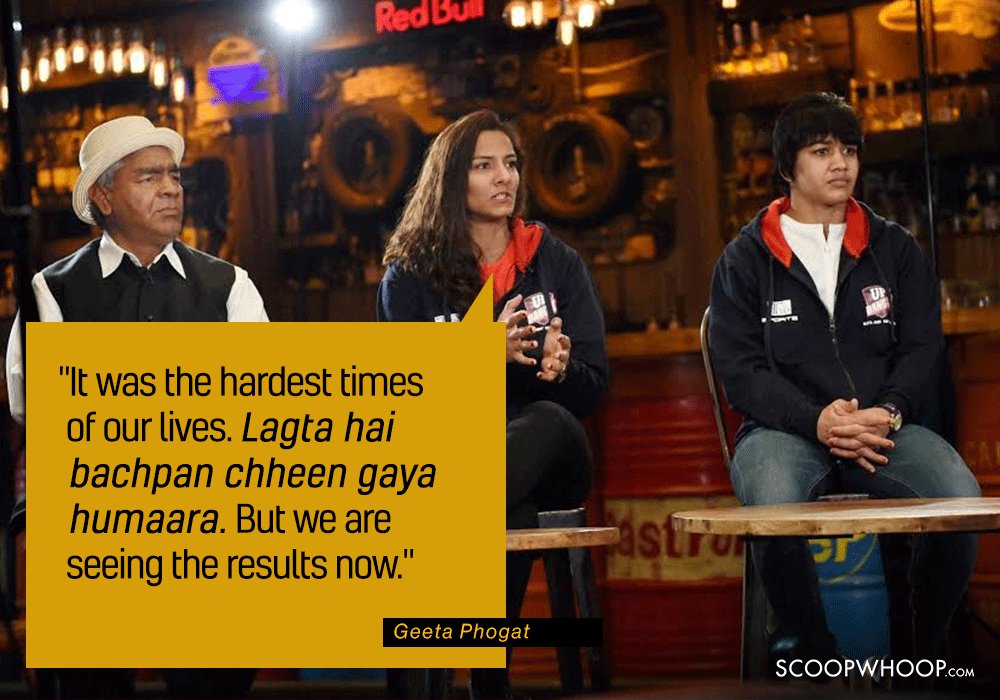
Dangal, which has now become the highest grossing Bollywood movie of all time, is inspiring. Three weeks after the release of the movie, the screens are still packed. The national anthem at the end, when Geeta stands atop the medal podium, has misty-eyed crowds across the country standing up in respect, followed by a rousing applause.
But was it really necessary to add so much fiction to the story to elicit that response from the audience?
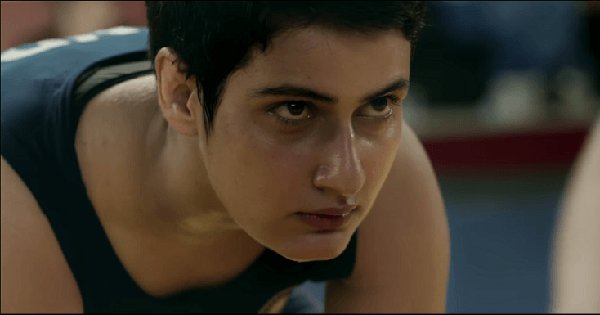
For the record, Geeta’s final in CWG was not a bout that was won with one second left on the clock. It was a convincing 1-0, 7-0 win – a bout that was completely dominated by Geeta. Her opponent’s name was Emily Benstead, not Angelina Watson. And her opponent sure as heck did not sledge Geeta in the press conference preceding the final. And while we are it, Geeta’s win in the semi-final — the bout that she called the toughest of her life till then — was not decided by a coin toss as shown in the movie.
While adding fiction to elevate the drama is still acceptable, what was the need to portray the opponent as a cardboard character? Why is the script of inspiring Indian sports dramas always the same? Why do Indian protagonists always have incredibly arrogant westerners as adversaries?
In reality, the final was indeed a near-perfect bout for Geeta. Take a look at the actual video and, hands on heart, tell us you don’t find it sensational?
The aggression, the professionalism, the clinical nature in which she outclasses a superior opponent — are these not dramatic enough for Bollywood?
And then there is the most contentious portrayal of all — the evil coach. Did the movie scream out for a villain so much that the coach had to be made to look like the second coming of the Joker, with his scheming against Mahavir Singh Phogat, sabotaging Geeta’s attempts to win the gold? There are conflicting reports over whether Mahvir was actually present in the arena for the final — Mahavir’s biography says he was while Geeta & Babita said he was denied entry.
But rest assured — he was not locked up in a room by the coach. There were, indeed, misunderstandings between Mahavir and the national coach over the extra sessions that he made his daughters train, but it never went to the ridiculous extent as is shown in the film.
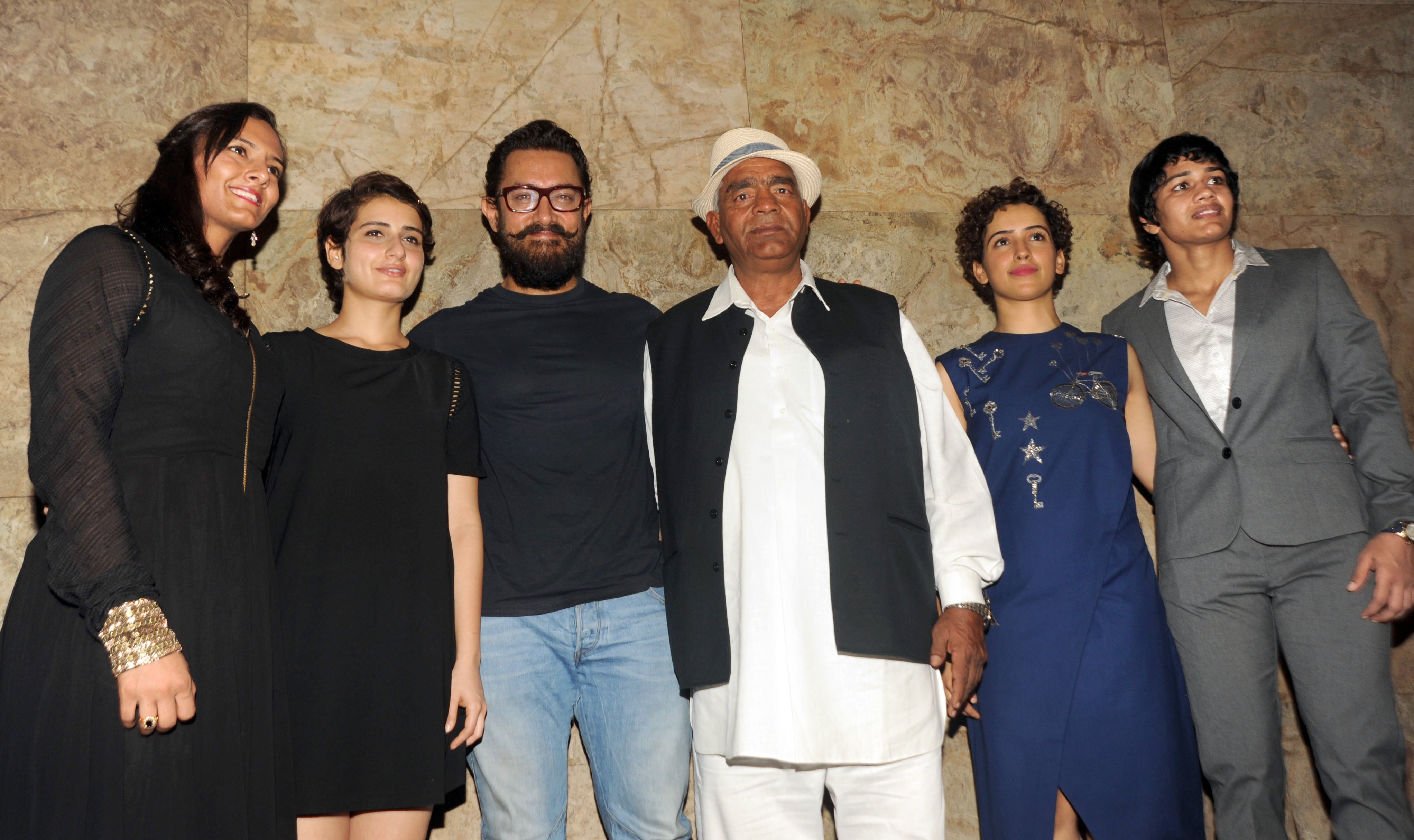
The patriarchal nature of the Haryanvi society — which was admirably addressed in Dangal — was, in reality, a big enough ‘villain’ to make people understand the magnitude of Geeta, Babita and Mahavir’s achievements.
By all accounts, the movie is well-made. It brings out a story that every Indian sports fan must know. It might end up making wrestling popular. The actors have put in a tremendous effort to look the part of wrestlers — Fatima Shaik’s performance in the final bout brought immense pride to Geeta, in her own words.
No sports biopic — be it Indian or Western — is ever perfect. Adding elements of fiction is essential to make it work on the screen. But to re-script Geeta’s entire journey at the CWG (and her struggles leading up to the event) was, at best, uncalled for and at its worst, an insult to the journey that the three protagonists went through in their real life. Maybe Aamir and Tiwary thought the audience were not mature enough to consume realism — but they would not know without trying, would they?
It’s like the film-makers are telling the Phogat family: ‘great going guys, but we don’t think it’s inspiring enough to be shown as such.’
And that really is a shame.




